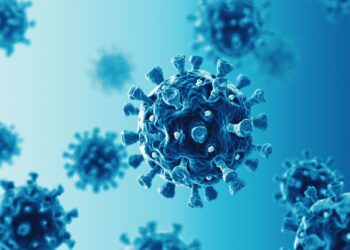The World Health Organization (WHO), on Thursday, issued its first emergency use validation for a Covid-19 vaccine, since the outbreak of the pandemic started about a year ago.
The United Nations Health agency listed the Comirnaty Covid-19 mRNA vaccine, produced by Pfizer/BioNTech, for emergency use, as it emphasized on its equitable distribution globally.
READ: COVID 19: Debt Service Suspension Initiative extended to June 2021 – World Bank
This disclosure is contained in a statement that was issued by WHO on Thursday, December 31, 2020, and can be seen on its website.
The statement says that WHO’s Emergency Use Listing (EUL) opens the door for countries to expedite their own regulatory approval processes to import and administer the vaccine. It also enables UNICEF and the Pan-American Health Organization to procure the vaccine for distribution to countries in need.
READ: European countries ban flights from UK as new Covid-19 strain spreads
What the WHO top official is saying
WHO Assistant Director-General for Access to Medicines and Health Products, Dr Mariangela Simao, said, “This is a very positive step towards ensuring global access to COVID-19 vaccines. But I want to emphasize the need for an even greater global effort to achieve enough vaccine supply to meet the needs of priority populations everywhere.
“WHO and our partners are working night and day to evaluate other vaccines that have reached safety and efficacy standards. We encourage even more developers to come forward for review and assessment. It’s vitally important that we secure the critical supply needed to serve all countries around the world and stem the pandemic.”
READ: FG suspends passports of 100 Nigerians for refusing post-arrival Covid-19 test
While reviewing the data on the Pfizer/BioNTech vaccine’s safety, efficacy and quality as part of a risk-versus-benefit analysis, regulatory experts convened by WHO from around the world and WHO’s own teams found that the vaccine met the must-have criteria for safety and efficacy set out by WHO and that the benefits of using the vaccine to address COVID-19 offset potential risks.
Meanwhile, the WHO’s Strategic Advisory Group of Experts on Immunization (SAGE) will convene on January 5, 2021, to formulate vaccine-specific policies and recommendations for this product’s use in populations, drawing from the SAGE population prioritization recommendations for COVID-19 vaccines in general, issued in September 2020.
READ: Covid-19: Russia applies to WHO for emergency use tag for its vaccine
The Comirnaty vaccine requires storage using an ultra-cold chain; it needs to be stored at -60°C to -90°C degrees. This requirement makes the vaccine more challenging to deploy in settings where ultra-cold chain equipment may not be available or reliably accessible. For that reason, WHO is working to support countries in assessing their delivery plans and preparing for use where possible.
READ: FG warns of significant increase in Covid-19 cases in January 2021
What you should know
It can be recalled that the Pfizer/BioNTech Covid-19 vaccine, which was certified 95% effective in the prevention of coronavirus disease in the final study, got approval for emergency use in the United States and the UK.
The emergency use listing (EUL) procedure assesses the suitability of novel health products during public health emergencies and has the objective of making medicines, vaccines and diagnostics available as rapidly as possible to address the emergency while adhering to stringent criteria of safety, efficacy and quality.
READ: Covid-19: Nigeria is well into a Second Wave
The assessment looks at the threat posed by the emergency as well as the benefit that would accrue from the use of the product against any potential risks.
The EUL pathway involves a rigorous assessment of late phase II and phase III clinical trial data as well as substantial additional data on safety, efficacy, quality and a risk management plan. These data are reviewed by independent experts and WHO teams who consider the current body of evidence on the vaccine under consideration, the plans for monitoring its use, and plans for further studies.
READ: Covid-19: Europe launches mass vaccination of doses to end the pandemic
As part of the EUL process, the company producing the vaccine must commit to continue to generate data to enable full licensure and WHO prequalification of the vaccine.






















